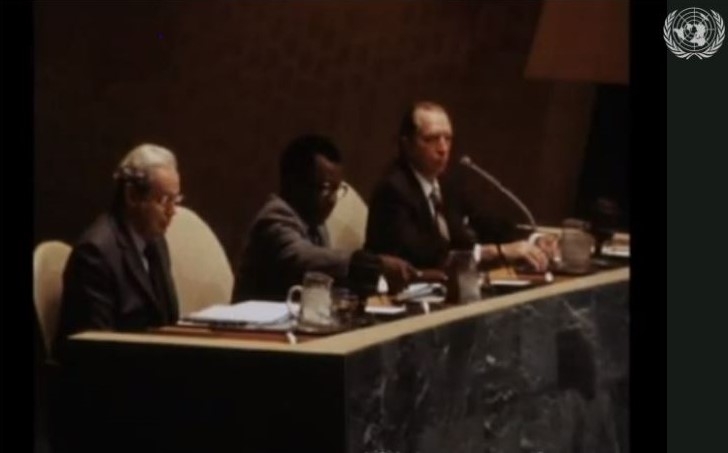CTI Statement recognising 35 years of the UN Convention against Torture
This year’s news headlines have showed, regrettably, that torture, violence and ill-treatment remain very real threats to our societies and a peaceful global community. Unequivocally, the persistence of torture and ill-treatment demands a robust, sustained and viable response.

On 10th December this year, fittingly also Human Rights Day, the world will commemorate the 35th anniversary of the adoption of the United Nations Convention against Torture and Other Cruel, Inhuman or Degrading Treatment or Punishment (UNCAT). UNCAT is a collective blueprint, steering the current 169 States parties – step-by-step – on ways to achieve peaceful, just and non-violent communities and countries.
Galvanized by the persistence and entrenchment of the use of torture and ill-treatment in many countries, our governments came together in 2014 to conceptualise and create the Convention against Torture Initiative (CTI, https://cti2024.org/), a time-limited inter-governmental project aspiring to strengthen institutions, policies and practices for dignified and rule-based governance, reduce and prevent the risks of torture and ill-treatment, and inspire each other to better performance across-the-board.
No State is exempt from challenges or risks; that’s why we’re seizing this opportunity to exchange on achievements, benefits, best practices, and challenges, in the promotion of the universal ratification and implementation of the Convention’s provisions.
The work of our six States – Chile, Denmark, Fiji (which joined in February 2019), Ghana, Indonesia and Morocco – focuses on UNCAT because our governments believe in the stability made possible by international rule of law and multilateralism. Together with our large Group of Friends, our efforts are based on dialogue, international cooperation, technical support and capacity building. This constructive approach – reinforcing the equality between States and mutual respect – has enabled tremendous progress, helping to advance even further than we expected when we set out five years ago.
Fifteen (15) new States have ratified UNCAT in the last five years, outperforming ratification rates of most other global human rights treaties, leaving only 26 States before universal endorsement of the Convention’s main tenets. Through the legal and operational expertise of the CTI Secretariat, which we established to deliver annual programmes of activities, over 140 countries and hundreds of public officials and other stakeholders have participated in CTI’s regional events, seminars and visits, strengthening their knowledge, expertise and capacity on humane and non-coercive methodologies and practical approaches. This suite of activities has led to reforms of laws, policies, operational methods, conduct and mind-sets. Over 100 best practices have been implemented within various countries, captured in CTI’s practical tools.
Although there are many challenges and significant work to do, we cannot afford to be complacent, nor pessimistic. At this important moment, we encourage all UN Member States to join our Initiative and help us harness the momentum, support and successes so far achieved to accelerate countries’ efforts toward universal ratification and full implementation of this fundamental human rights treaty.
The Governments of Chile, Denmark, Fiji, Ghana, Indonesia and Morocco.

